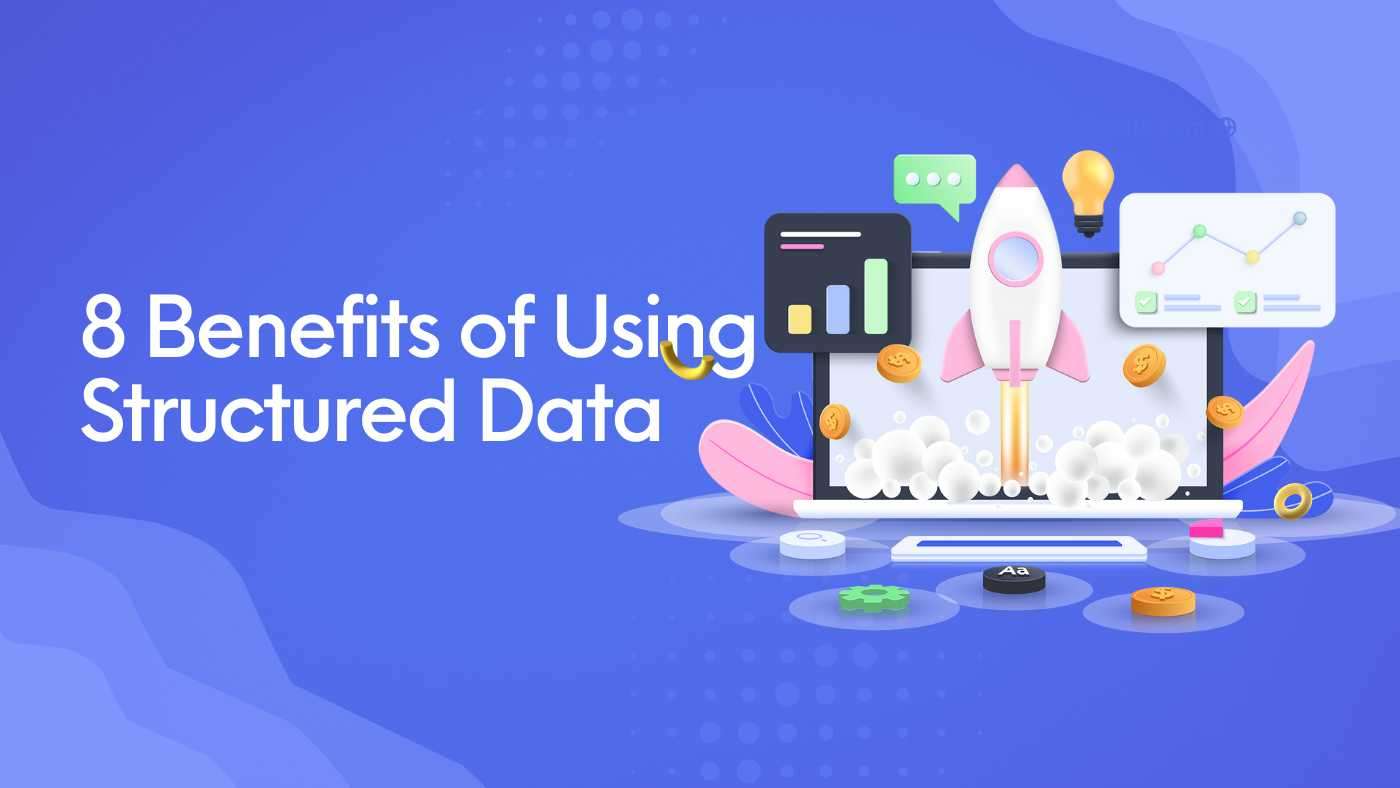Introduction
As the digital landscape continues to evolve, the importance of structured data cannot be overstated. In this article, we will explore the myriad benefits of using structured data and how it can significantly enhance your online presence.
Improved Search Engine Visibility
- Increased Click-Through Rates: By providing search engines with clear, structured data, you can improve the visibility of your content in search results, ultimately leading to higher click-through rates.
- Rich Snippets: Structured data helps search engines understand the context of your content, enabling them to display rich snippets that provide users with more information before they even click on your link.
Enhanced User Experience
- Better Understanding of Content: Structured data allows search engines to better understand the content of your website, resulting in more accurate and relevant search results for users.
- Faster Load Times: With structured data, search engines can quickly crawl and index your website, leading to faster load times for users.
Increased Website Traffic
- Improved Ranking: By implementing structured data, you can improve your website’s ranking in search engine results, driving more organic traffic to your site.
- Click-Through Rate (CTR) Improvement: Structured data can also lead to higher click-through rates, as search engines display rich snippets that are more enticing to users.
Boosted Conversion Rates
- More Qualified Leads: With structured data, you can attract more qualified leads to your website, as search engines will better understand the intent behind users’ queries.
- Enhanced Product Visibility: If you’re an e-commerce site, structured data can significantly enhance the visibility of your products in search results, leading to increased conversions.
Streamlined Data Analysis
- Data Standardization: Structured data helps standardize the format of your data, making it easier to analyze and compare different sets of information.
- Improved Data Quality: By structuring your data, you can ensure its accuracy and consistency, leading to more reliable analysis and decision-making.
Better Mobile Experience
- Mobile-Friendly: Structured data plays a crucial role in optimizing your website for mobile users, ensuring a seamless and user-friendly experience across all devices.
- Voice Search Compatibility: With the rise of voice search, structured data is essential for ensuring that search engines can easily understand and index your content for voice queries.
Read More: How to Optimize Your Website for Search Engines
Enhanced Local SEO
- Local Search Results: Structured data can help improve your visibility in local search results, making it easier for users to find your business when searching for products or services in their area.
- Markup for Local Businesses: By implementing structured data markup for local businesses, you can provide search engines with key information about your business, such as your address, phone number, and operating hours.
Future-Proofing Your Website
- Adaptability: Structured data is constantly evolving, with new schema types and enhancements being introduced regularly. By staying up-to-date with structured data best practices, you can future-proof your website and ensure it remains competitive in the ever-changing digital landscape.
- Competitive Edge: Websites that effectively utilize structured data have a competitive edge in search engine results, as they are more likely to appear prominently in rich snippets and other visually enhanced search features.
Conclusion
In conclusion, the benefits of using structured data are clear and far-reaching. From improved search engine visibility to enhanced user experience, increased website traffic, boosted conversion rates, streamlined data analysis, better mobile experience, enhanced local SEO, and future-proofing your website, structured data is a powerful tool that can take your online presence to the next level. By implementing structured data best practices, you can unlock a myriad of benefits that will set you apart from the competition and help your website thrive in the digital age. It’s time to harness the power of structured data and elevate your online presence like never before.
“Structured data is not just a nice-to-have; it’s a must-have in today’s digital landscape.”
External Links:
FAQ
What is structured data?
Structured data refers to organized information formatted for easy interpretation by computers. It typically follows a specific schema or format, making it readily searchable and analyzable.
How does structured data differ from unstructured data?
Unstructured data lacks a predefined format or organization, making it challenging for computers to interpret without human intervention. Structured data, on the other hand, adheres to a predetermined schema, facilitating automated processing.
What are the benefits of using structured data?
Structured data offers numerous advantages, including improved search engine visibility, enhanced user experience, better data analysis capabilities, increased accessibility, and streamlined information retrieval.
How does structured data enhance search engine visibility?
Search engines utilize structured data to understand and categorize content more effectively, leading to enhanced visibility in search results through rich snippets, knowledge graphs, and other prominent features.
In what ways does structured data improve user experience?
By providing search engines with structured data, websites can offer users more informative and relevant search results, thereby enhancing user satisfaction and engagement.
Can structured data help with data analysis?
Yes, structured data simplifies data analysis by enabling automated processing and interpretation. It allows businesses to extract valuable insights from large datasets more efficiently, leading to informed decision-making and improved operational efficiency.
How does structured data increase accessibility?
Structured data enhances accessibility by making content more understandable and navigable for users with disabilities. It enables screen readers and other assistive technologies to interpret web content more accurately, thereby improving accessibility for all users.
Does structured data improve information retrieval?
Absolutely. With structured data, information retrieval becomes more efficient and precise. Users can easily locate relevant content through advanced search filters and categorization, leading to a more seamless browsing experience.
What types of content benefit most from structured data implementation?
Various types of content can benefit from structured data, including articles, recipes, events, products, reviews, and organizations. Implementing structured data helps ensure that different content types are appropriately indexed and displayed in search results.
Is structured data essential for all websites?
While structured data is not mandatory, its implementation can significantly enhance a website’s visibility, usability, and overall performance. It’s particularly beneficial for businesses seeking to improve their online presence and provide users with richer, more relevant information.





